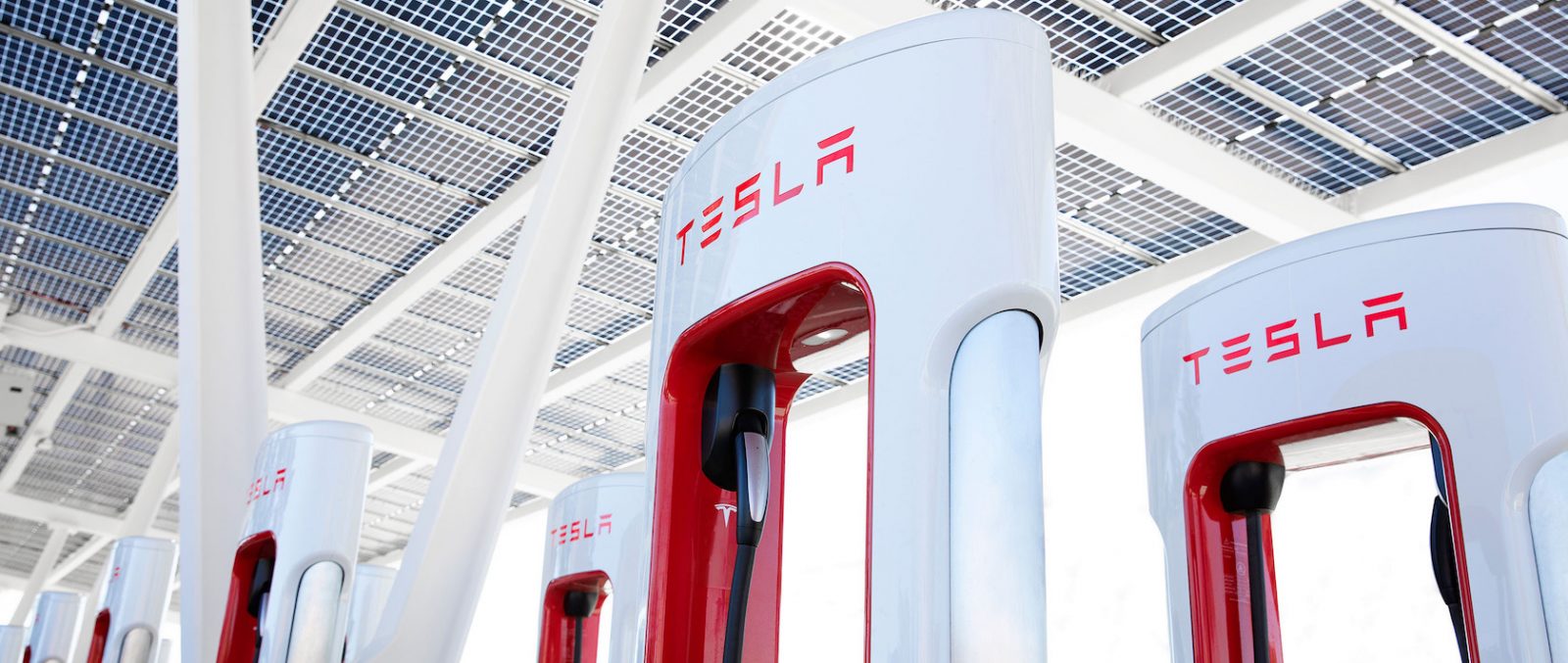- The White House nudges Tesla to share its chargers
- Tesla opening up its chargers will aid with EV adoption
- S&P researchers forecast we will need up to eight times as many chargers by 2030 to support the growing volume of EVs
Tesla has finally agreed to share its chargers with other brands. But it needed a nudge from President Joe Biden to do it. That means the EV maker can now qualify for federal tax incentives for expanding U.S. charging infrastructure.
Tesla’s agreement to open part of its proprietary car-charging network to drivers of rival brands is a big deal, but it should make things a lot easier for EV owners to charge away from home, potentially accelerating EV adoption.
The Biden administration’s clean energy agenda includes a shift away from gasoline-powered cars and a new domestic supply chain for electric cars. But many Americans have delayed buying EVs due to concerns about range anxiety and charging on long road trips.
Earlier this week, the White House detailed several measures that address those concerns and ensure that chargers are built in America. Of special note was the fact that Tesla agreed to make some of its U.S. Supercharger network and its slower-speed destination chargers available to non-Tesla EVs.
At this juncture, however, it needs to be stressed that the announcement was made by the White House, and not Tesla. Tesla needed some persuasion from President Biden to open up its network.
So what kind of network are we talking about here? S&P Global Mobility estimates there are about 20,430 Level 3 “fast-chargers” and 126,500 slower Level 2 chargers in the U.S. today, plus another 16,800 Tesla Superchargers and slower Tesla destination chargers dotted around the country. And according to S&P researchers, that’s not nearly enough to support the quickly emerging EV market. The researchers forecast we will need up to eight times as many chargers by 2030 to support the volume of EVs.
To overcome these hurdles, Tesla will more than double its nationwide network of Superchargers, which are manufactured in Buffalo, New York, the White House said. The announcement stated that at least 7,500 Tesla chargers will be available for all EV users by the end of 2024.
That includes at least 3,500 new and existing 250-kW Superchargers along highway corridors, which allow EVs to charge from 10-80% in under 25 minutes. This development means that owners of Ford, GM, Kia, Volvo, and Lexus EVs will be able to charge at Tesla stations.
For the time being, non-Tesla users must use fast-charging networks operated by Electrify America and EVGo. But many non-Tesla EVs use a different type of plug than Tesla’s proprietary connector, which is incompatible, although adapters are newly available. A White House spokesperson said that we need to get to a state where charging is as simple as filling up with gas.
Debate is heating up in industry circles centered around the need for one standard plug, a single, all-access app, and one billing platform, regardless of what kind of car you drive or what network you charge on.
This seems to be the goal of the Biden administration, which is now requiring that federally funded chargers use technology that makes it easy to pay for electricity usage.
OUR THOUGHTS
It’s great to see the White House getting involved and flexing its muscle in advancing the EV movement. Persuading Tesla to share its chargers with other brands is a big win for EV adoption. What is really needed though, is one standard plug for all—a single, all-access app, and one billing platform, regardless of what kind of car you drive or what network you charge on.
